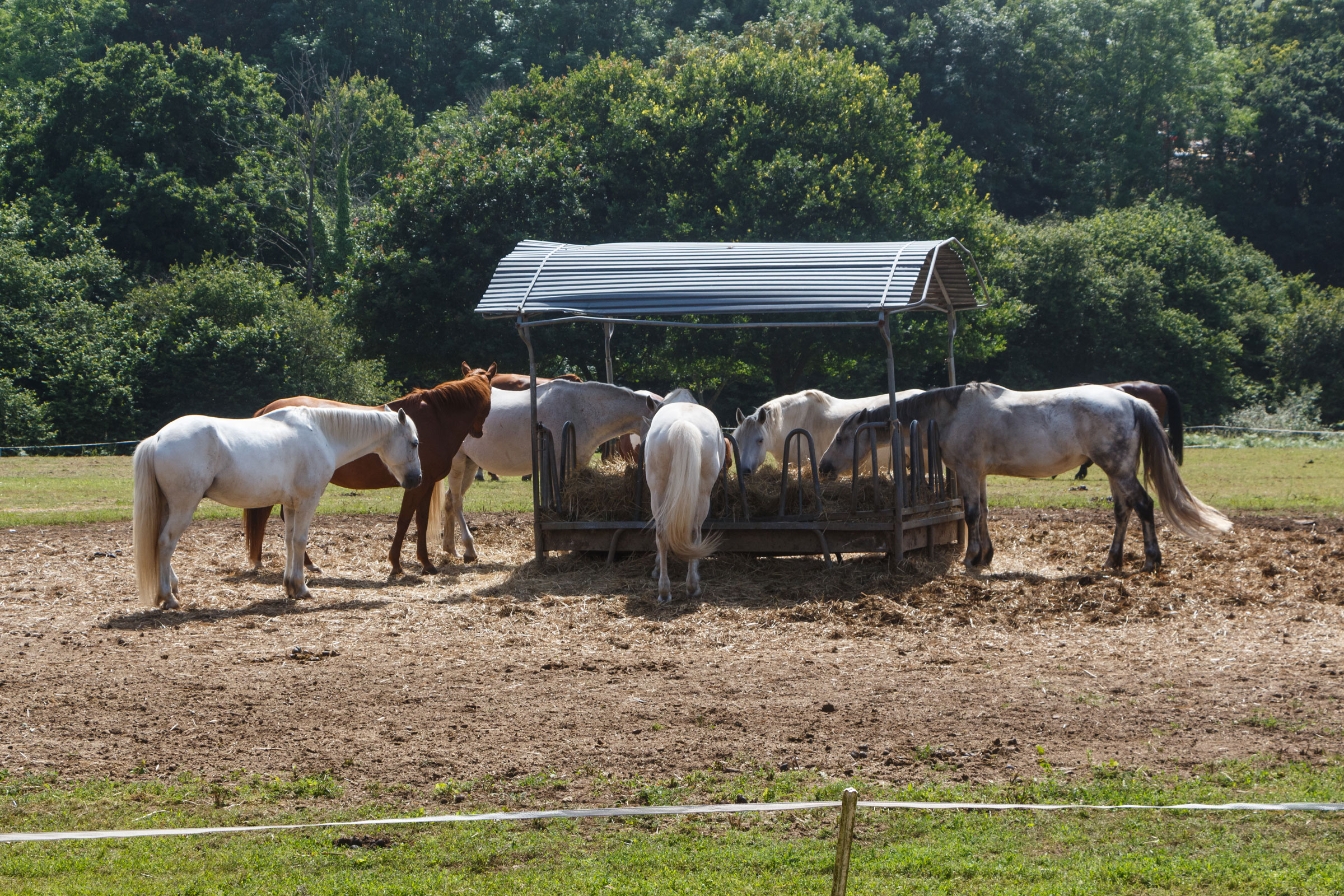
Most horses are like dogs; they have no self-control when it comes to food. Although a grain ration is often consumed within a short period of time, hay is designed to be consumed over several hours. When left to their own devices, the marvelous munchers quickly devour their meal. Slow feed hay bags are designed to slow horses down and help eliminate hay waste. However, choosing the right hay bag can be overwhelming.
It’s not a one-size-fits all solution for every barn or every horse. The hay coarseness, the time of year, the individual animal’s eating habits and the ease of use all factor into which system is right for your barn.
“We prefer hay nets with small two-inch holes,” said Corinne Severance, who helps manage her family’s Meadow Hill Farm in Melrose, New York. “They allow the horse to eat slower, have hay all day and waste much less.”
Researchers have estimated that waste is cut to as little as 5-10% when a feeder is used. Without a feeder system, horses rifle through the hay for the leafiest, tastiest part of the hay ration and often skip other good—but less desirable—parts of the bale. When hay is fed on the ground, horses will trample, sleep and poop on loose hay and ultimately leave it behind.
“We even use hay nets on our round bales outside, which has reduced waste quite a bit,” she said. “Our favorite brand is from Orange Slow Feeder. They do not freeze and are manageable in the winter.”
When using slow feed nets with hay huts or round-bale feeders, be sure that the feeding system is horse-safe. Look for feeders that have round, smooth edges to avoid injury.
Quality slow feeders are an investment, but spending a bit extra up front pays off in the long run by making your hay supply last longer. Don’t forget to look for systems that are easy to refill.


